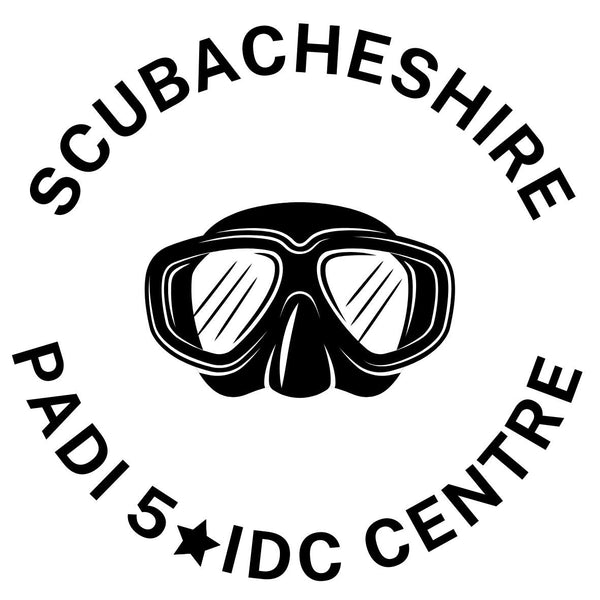Scuba Diving FAQ's
Frequently Asked Questions (FAQ) - Scuba Cheshire
General Questions
Q1: What is scuba diving? A: Scuba diving is an underwater activity where divers use a self-contained underwater breathing apparatus (scuba) to breathe while exploring underwater environments. At Scuba Cheshire, we aim to make this experience accessible and enjoyable for everyone.
Q2: Who can participate in scuba diving? A: At Scuba Cheshire, we welcome divers of all ages and skill levels. Most diving agencies require participants to be at least 8-12 years old for junior certification. There are no upper age limits, but a medical check-up may be necessary for older individuals.
Q3: Do I need to be a strong swimmer to scuba dive? A: Basic swimming skills are required, such as being able to swim 200 metres and float for 10 minutes. Comfort in the water is more important than speed or endurance. Our instructors at Scuba Cheshire will ensure you’re confident and prepared.
Equipment Questions
Q4: What equipment do I need for scuba diving? A: Essential scuba equipment includes a mask, snorkel, fins, regulator, buoyancy control device (BCD), dive computer, and a tank. At Scuba Cheshire, we provide high-quality rental gear for all your diving needs.
Q5: How often should I service my scuba equipment? A: It is recommended to service your scuba equipment at least once a year or after 100 dives, whichever comes first. Regular maintenance ensures your gear remains safe and functional. Scuba Cheshire offers comprehensive servicing for all types and brands of equipment.
Q6: Can I rent scuba equipment? A: Yes, Scuba Cheshire offers a range of rental equipment. This is a great option for occasional divers or those who are new to the sport and want to try different gear before purchasing.
Safety Questions
Q7: Is scuba diving safe? A: Scuba diving is generally safe when proper training, equipment, and procedures are followed. Always dive within your limits, follow your training, and never dive alone. At Scuba Cheshire, safety is our top priority.
Q8: What should I do in an emergency underwater? A: In an emergency, stay calm, signal your dive buddy, and follow your training. Use your alternate air source if necessary and make a controlled ascent. Always plan your dive and dive your plan to minimise risks. Scuba Cheshire's training programs emphasise emergency preparedness.
Travel and Dive Sites
Q9: Where are some popular scuba diving destinations? A: Popular destinations include the Great Barrier Reef (Australia), the Red Sea (Egypt), the Caribbean, the Maldives, and Thailand. Each location offers unique underwater experiences and marine life. Scuba Cheshire also organises trips to exciting dive spots.
Q10: Can I scuba dive in cold water? A: Yes, with the appropriate gear, such as a drysuit, you can scuba dive in cold water environments. Cold water diving offers unique marine life and underwater landscapes. Scuba Cheshire provides training and equipment for cold water diving.
Certification and Training
Q11: How long does it take to get scuba certified? A: The basic Open Water Diver certification typically takes 3-4 days to complete, including classroom sessions, confined water dives, and open water dives. Scuba Cheshire offers flexible scheduling to accommodate your needs.
Q12: Can I take a refresher course if I haven't dived in a while? A: Yes, if you haven’t dived in over a year, it’s recommended to take a refresher course to review essential skills and knowledge. Scuba Cheshire offers refresher courses to help you regain your confidence.
Health and Medical Questions
Q13: Do I need a medical examination to scuba dive? A: While not always required, it is advisable to have a medical examination if you have any health concerns or conditions. Some dive operators may require a medical certificate. Scuba Cheshire provides guidelines on necessary health checks.
Q14: Can I scuba dive if I have a medical condition? A: It depends on the condition. Some medical issues may prevent you from diving, while others may not. Always consult with a physician and inform your dive instructor of any health concerns. Scuba Cheshire ensures all divers are fit to dive safely.
